Economy: The advantages of stability and maintenance of our political landscape as crucial for our economy.
From an economic viewpoint, maintenance of status quo is perfect. The recent successful issuing of Eurobonds is a testimony of the credibility and predictability of our economy from both the global financial sector and development partners. This indeed has been made possible by transparent and reformative economic policies of our country. The consistent economic growth rates at around 8-9% are among the best in the world and they are predicted to increase in the following years.
How did we get here: we got here, thanks to a public sector that upholds principles of probity and incorruptibility. A system that is increasingly breaking away with the usual African handicaps of sloth, red tape and poor service delivery.
But the economic stability remains vulnerable to other factors, and it remains vulnerable just all together. Here we are talking about around four to five billion dollars – of which almost half does not belong to nationals. But as small as it is, it seems to serve its purpose quiet well. Like the adage goes, its not about its size, its about how you use it. For a kleptomaniac state, all that money can easily end up in one individual’s pockets. But for a transparent government it can transform the lives of millions.
But why has it not gone the individual pockets way?
It is not to say that Rwandans are inherently smarter and upright people; they are normal, hard working men and women, students and practitioners of the best development models, yes, but who happen to respect, or should I say fear the law. Some of them are not corrupt because of their love for the country and its peoples; that is great. Others, who might be tempted, understand the consequences if they were caught and prefer not to. For this we have to thank President Kagame. While preaching for more dignity, hard work, etc., he has also been able to keep his lieutenants in line and uphold the rule of law. During his tenure, there has been a very low tolerance rate of corruption.
But the rule of law is not a given, it needs to be enforced. Why? Because everyday there are people who try to break the law and get away with it. While strong institutions are what one needs to enforce the rule of law, when, institutions are still in their ‘insipient stage’, their limits need to be complemented by strong leaders.
Leadership: But what is a strong leader? Most of things we are told about strong leaders are not true. I would like to give you the general perception and the uncensored version:
A strong leaders is one that is feared by his people – the Machiavelli theory: this is not entirely true for many reasons:
– It was valid during the times when national sovereignty was a sacrosanct principle, where you could uninterruptedly oppress your people, provided you were able to grease up your neighbors, and be an ally to superpowers – hence the Mobutus of this world. That principle’s might is shrinking into distance, due to a significant global paradigm shift: Having finally admitted that States were the main violators of the rights of their own people, that dictators were given too much credit when it comes to loving their citizens; but also the fact that states have gone too far in conducting atrocities. There came up a theory of the Responsibility to Protect (R2P) by the UN and now increasingly the AU.
– With the advent of regional and continental integrations, people are seeing themselves beyond their national boundaries, they have cross-boarder interest and want to know and, if possible, influence what is going on across the boarder. So a leader that is feared only by his people remains vulnerable to regional and global influence.
– A Leader that is supported by the west/east: this is equally not sufficient for three reasons: in the current bipolar or multi-polar world, befriending the east somehow alienates the support of the west and vice versa. No leader is able to harness both supports at the same time, and recent events have shown us that external support is ineffective in protecting leaders from internal ‘civilian’ uprisings.
– A leader that is loved by his people: Now African leaders like to flog this one, a la Mugabe: ‘go to Zimbabwe and ask Zimbabweans what they think of me!’ As romantic as it sounds, this is not a determining factor either, for two reasons: The love of the people is not true love in the biblical sense: one that is devoid of all interest; It is our regular love of interest. People do not love leaders, they love security, food, schools, healthcare, employment, but also political participation. They want to know that they too have a shot at that top job. Sure they will show a leader that they love him for a while, because no one else has come to poison – or enlighten their mind, give them guns, agitate them, or just show them new interests. What is important to note is that, when time comes, those close and loyal to the ‘brother leader’ will be the first to defect and turn against him, a la Mussa Koussa.
– We are Africans and we have our special way of life. Right, this is also disingenuous. It is called cultural relativism. We share the same aspirations for freedom with the rest of the world. But we are also docile and respectful of our leader, which in itself is not a bad thing, but once it gets to their heads, they mistake it from unconditional love, fear and willful choice. Like the ‘Y en a marre’ movement in Senegal said to Abdoulaye Wade: ‘tu pense que nous avons peur de toi, tu te trompe et on va te le montrer.’ You think we are scared of you, you are wrong and we will show it to you, and went ahead and elected his opponent.
– I am here by the will of the people: lets talk about that will: Again, it is not a free will like in the bible. Any pastor will tell you that in addition to preaching heaven’s rewards, they casually sleep in the consequence of eternal inferno in case free will was not diligently exercised. Sometime they start with the inferno story – just to set the Christians’ heads strait; usually around offering time…
– Who are these people who express their will? A handful of sycophants, all in privileged positions, many drawing their relevance to their current position? I was speaking to an MP the other day and with some stroke of humor, I cracked a joke: ‘honorable, you guys have to eventually vacate those positions and give us a chance…’ What? He said; ‘you have been in the NGO for ten years, I have been in politics for ten. This is what I do; Stay where you are, I will stay where I am!’
Not least, it is rare to gauge the will of the people amid election fever. Also, the people never express their will freely against an incumbent. Which is why today you can hardly meet an American Citizen who has voted for Bush. But wait a minute, the man was elected twice, but no one will admit to you they voted for him.
– A leader that controls the army: It goes like this: first you are a liberation hero, your country is the bread basket for the whole continent, the people love you, the army is loyal to you and you have support from the Prime Minister of UK and good relationship with the US. Kumbaya. At this point you have had a good run; a long run, but good nonetheless. Then your time is up but you don’t see it, you miss the exit.
And everything starts to run down, the government in the UK changes, the new guys don’t like you, or don’t feel the need to honor any commitment made to you by their predecessors, then foreign aid is frozen, embargo kicks in, the teachers and nurses whose salaries have not come for four months descend on the streets.
You send in the police and the army to contain them, things turn ugly and some of them are shot dead. You are held personally accountable. Then your opponents are given guns and legitimized. The international media makes up stories of a plan that you are developing to exterminate all intellectuals in your country and urge the world to stop you; the Security Council passes a resolution and your fate is sealed. Your loyal and strong army won’t prevail in the face of an international force such as the NATO. At this stage, the survival of a leader will depend on unwavering support from a strong neighbor such as South Africa, strong enough to block a US/France military intervention.
International NGOs power: Allow me to spend sometime on the NGO effect: Want it or not, NGOs are very influential – and not always benevolent. Why are they influential?
– They are popular: People who contribute taxes to governments also contribute to NGOs and in return the NGOs nurse their self-righteousness. As a result: just like Oprah tells almost all women in North America what to do, these NGOs tell people in the west what to think of Africa as a whole, where to be philanthropic and where not to.
– States need them: to justify their action to the electorate: Which non western states are part of the axis of evil, which states harbor terrorism, which ones are friends or enemies of democracy, etc. these NGOs will keep the population’s approval rating in the right place. In return they will put pressure on policy makers and influence their foreign policy;
– The media needs them: they give content and ‘pseudo-scientific’ backing for anything the media want to report on, because, where they come from, everyone believes they are African experts – this is called neo-exploration, they keep discovering us…
Sorry Africa, That’s how it is! Or, If we are not happy, let’s open ‘The Institutes for European Studies or a faculty of Swedish Society at the National University of Rwanda and launch ‘The Best European President Award’; to be given annually by ‘The Rwandan Youth Friends of Europe Association, to the best president in Europe; at this stage I would say, Berlusconi for his African-like polygamist tendencies, dear to our African presidents or Francois Hollande for his intervention in Mali. Between these two it would be a dead heat, and that, regardless of what their citizens think of them in the opinion polls. But I would say people like Angela Merkel who seem to have very successful economic policy for her country and is less visible in her interventions on the African continent, would not even make the long list. Got how it works?
You would ask why would NGOs hold a grudge against Rwanda? Rwanda is bad for NGO business! Well for one, the approach of homegrown solutions and self-reliance; or privileging social economic rights as the best way to realize civil and political rights – all Rwandan trademarks, are at odds with NGO slogans, that preach the exact opposite, and whose predictions that Rwanda would erupt into violent chaos in foreseeable future have been defied: consistently.
– Secondly, toping world bank, IMF and UN statistics while adopting a path that NGOs advise against is simply a slap in their face: I remember Arnaud Zacharie the head of a Belgian NGO: 11-11-11 reacting in a meeting: ‘mais j’en ai marre des bonnes nouvelles venant du Rwanda!’ I am fed-up with all these good news coming from Rwanda. ‘Experts’ hate it to be proven wrong; repeatedly! Which is why when it comes to freedom house ratings, the fact that women are emancipated, death penalty abolished and gay rights respected in Rwanda is overlooked, because Victoire Ingabire is in jail after having been found guilty of divisionism by a court of law. All the while, countries where none of those three things have been accomplished are placed way higher on the freedom ranking. They call her the ‘leader of the opposition’. Guess who first launched the catchy title? Hint: NGOs
– You think this is far-fetched? Now lets take HRW and Amnesty International for example: I have, from inside sources, information that HRW was strongly behind the UN group of experts mapping report on the war in DRC, and before it was released, they published a ‘leaked version’ which was a vulgar amplification of the actual report, and used it to call for aid cuts on Rwanda, before the actual report was presented to the intended forum – the UN sanction commission. Serious decisions were made on the basis of a leaked version of such an important report by a cohort of western countries, which never waited for the official version by the United Nations. This makes a farce of the so-called quality control and fact-checking mechanisms of the UN. Now compare that with the dismissal of a senior UN staffer, after he had revealed rape on minors by French troupes in Central African Republic.
– More revealing perhaps is the fact that, in response to an increasing number of court decisions to extradite genocide suspects living in Europe, to come and face justice in Rwanda, Amnesty International (AI) published – out of thin air – a controversial report on the prevalence of torture in Rwandan prisons, to the dismay of everyone. This was no coincidence; for anyone who knows how the EU legal system functions, reports of prison torture by AI are a very successful trial exception, frequently used by illegal immigrants in Europe opposing extradition to their respective home countries; usually from eastern Europe, Russia, china and Somali pirates. Now, no one actually believes that torture is prevalent in Rwandan prisons, but the report was meant to water down an amicus curiae (friend of the court) report by the government of the Netherlands giving assurance to the European Court of Human Rights that it was safe to extradite people to Rwanda because its legal system met international standards. Whether the report is factual or not, that is not in question; it was produced to serve a purpose, which was to block the extraditions, and assure to Genocidaires a residence permit in Europe, so to speak…
Conclusion and the Rwandan way forward: So what is strong leader?
– A strong leader is a legitimate leader. One that is charismatic and encompasses all the qualities described above: one that is loved by his people, enjoys support from the west, upholds good governance and incarnates the necessary constraining power to keep everyone in line, using the law. If you are lucky, which is rather rare, one that has all those qualities, and does not use them to abuse power. President Kagame perfectly embodies that legitimate leader, which makes it difficult to envision a Rwanda without him. But if he stays too long, that would violate his own principles: which is also a problem. So the question is: how can he stay and not overstay?
– Again, it is no use to replace him with a leader that is not legitimate or charismatic. Rwanda should not be like one of those countries that have presidents imposed to the people by superpowers or where former comedians or athletes become presidents. One that although democratically elected, only owes his election to his excellent oratory skills or one that people vote for with gas masks on – like in the second mandate of Chiraque in France; one that is brought in because he is the most feared among all warring factions like Nkurunziza in Burundi and finally one that is elected as a way to alternate power between ethnical groups. Most of these presidents (Not leaders) have no clear plan as to how to take the country to the next level of development, and they tend to have made too many promises to cronies, to make their way to the top. Promises that they cannot keep without hurting the people.
– Now Kagame made himself, or at least was made by Museveni, whom, he immediately affranchised himself from in the infamous Kisangani war. This leaves him not tightly indebted to anyone.
– More importantly, the loyalty of the army is key; as any breakdown in the chain of command will affect the stability, see the emergence of corruption, nepotism and ultimately, conflict.
– I had a discussion with a friend this afternoon, whom, while doing a Rwanda power mapping for me, went on and on with names of people who may be feared in Rwanda, but have no weight on the international scene. I told him, you see, those people are only useful for 50% of what a country needs. There is soft power that you seem to overlook, and that power lies with those who have a good grasp on how to navigate international waters – troubled waters at that. Our current president is special because he manages both with class…
– Here is my opinion: by the end of his term, president Kagame leaves as promised. But remains the head of the ruling party, which then anoints another person, who has most of Kagame’s qualities of integrity and some international legitimacy: The country is not ruled by one man, but by the party. So, that person needs to continue upholding the values of the RPF in terms of good governance and social welfare. He/She will not immediately commend the loyalty of the army, but the party, and Kagame helping will provide the necessary backing for that.
– This person needs not be a genius – if he/she is, that’s is great – but he/she needs to be a true leader. During the first term, he/she will receive full support from president Kagame, who should be able to groom him/her and introduce him/her to the job. President Kagame’s presence may continue to be visible in the Rwandan political life, as an elder, a Senator and a former president, a philanthropist, but not to overshadow the new president.
I know you will disagree; just let me know where…
Posted 26th May




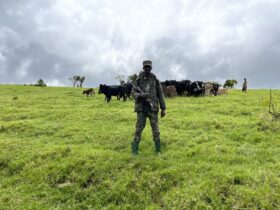




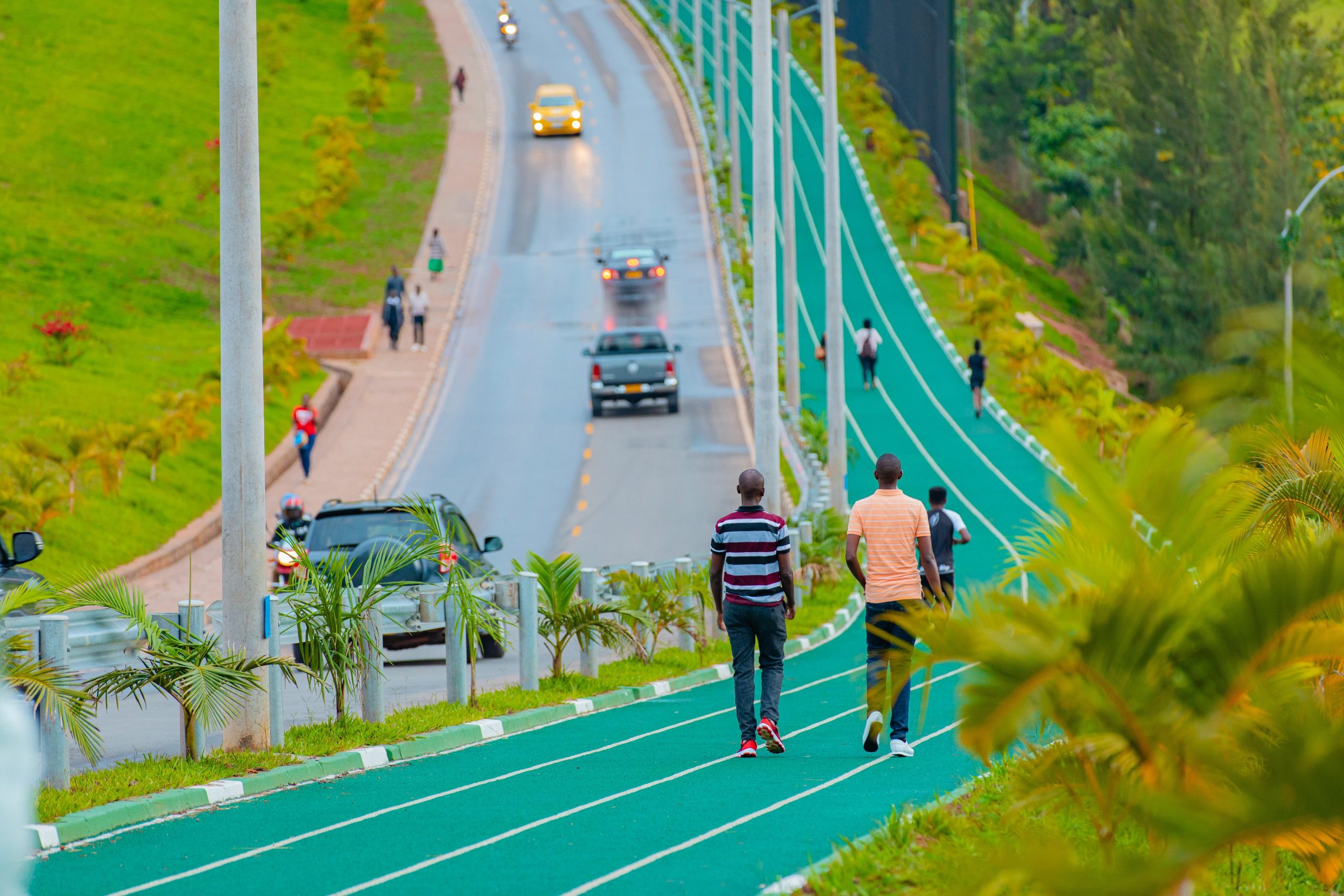



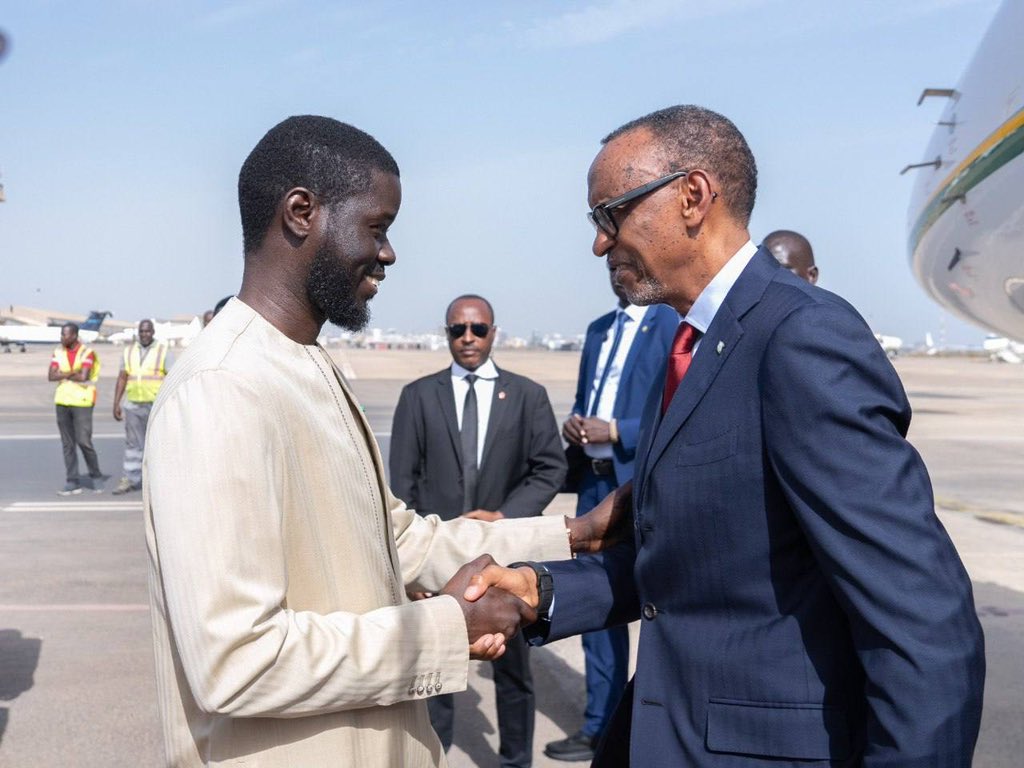
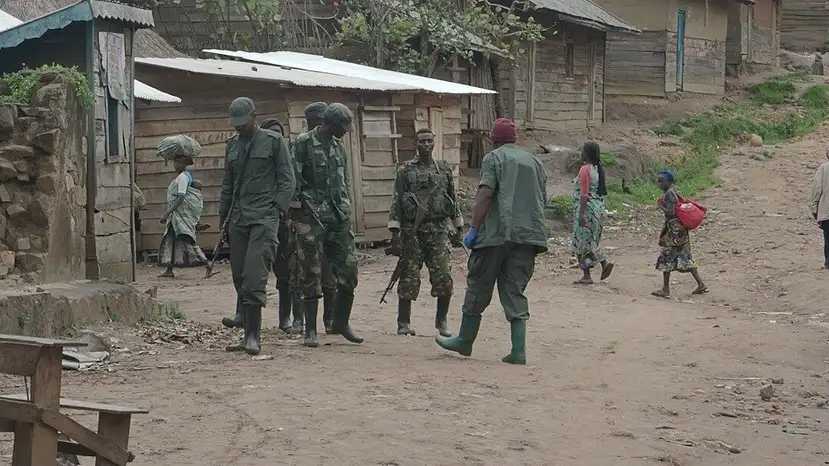
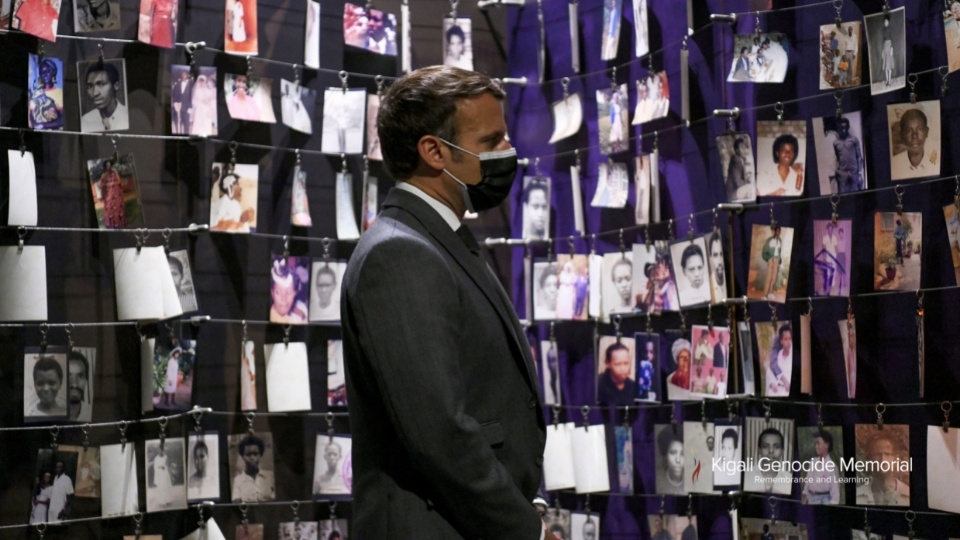
Leave a Reply